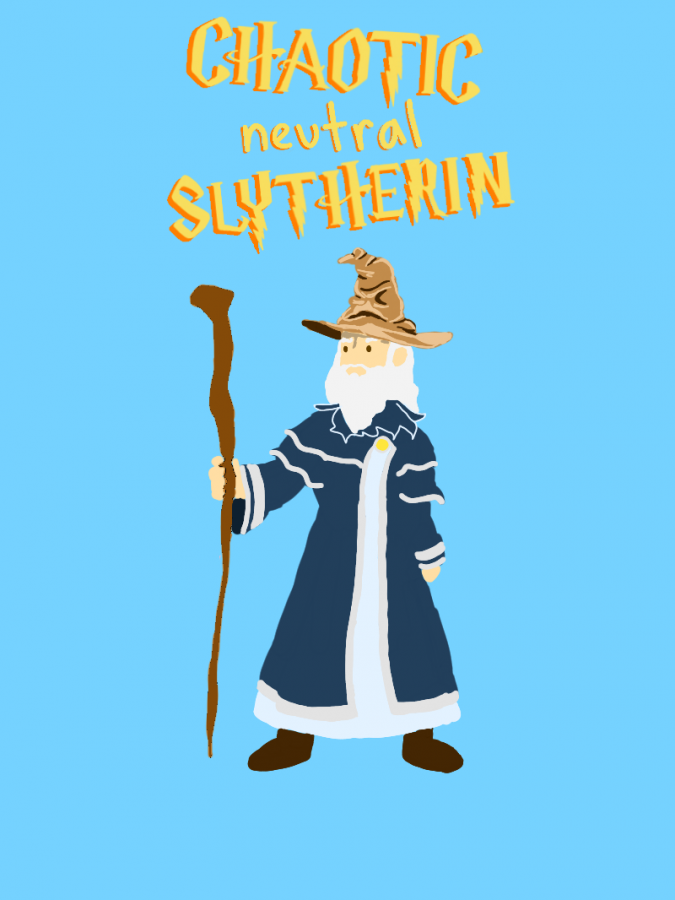Self-identified labels are helping teenagers end negative stereotypes
Photo by Laura Rico-Zarate
Harry Potter fans use Pottermore as a way to classify their personality type and identify with others.
May 23, 2019
Ranging from the Hogwarts House quiz on Pottermore, alignment tests for Dungeons and Dragons, or simple “Which character am I?” quizzes, people have a fixed attraction for labels. This isn’t solely restricted to online affiliations with popular culture; many other common labels exist and not all are given with harmless intent. These new labels offer people a way to fit in with groups of similar interest without feeling restricted or ridiculed.
Older labels have begun to dwindle because of the insulting connotations that come with them. Someone who is intelligent and spends time studying may be called a ‘nerd,’ while someone who is invested in sports or fitness is called a ‘jock.’ Although there is nothing wrong with caring about class performance or playing an athletic sport, these labels induce a negative reaction due to the prejudice surrounding them.
“I think it’s okay for people to give themselves labels, because it’s a choice they make to express themselves, but it isn’t okay for people to label someone else or for a person to disrespect a label that someone has chosen for themself,” Charlotte Nite (9) said.
When people label others, they are making assumptions based on limited knowledge from first impressions; the amount of information available from a single meeting can often be too little to make an accurate judgement. While someone’s interest may be visible on their shirt or backpack, an interest or hobby can’t always be used to tell how or what someone is like.
“People naturally want to feel included in something bigger than themselves. That’s why people form clubs and political organizations. People can place labels they want for themselves, but you shouldn’t live your life according to how others would expect you to act or to set a ‘standard,’” Zachary Ahern (12) said.
While labels can give a sense of self and belonging with those around, it can also create conformity and lead to an “us vs. them” mentality which inspires division because their label and someone else’s don’t typically get along. That’s why these unique labels are more freeing, as they are more diverse and widespread to allow the users to feel more in control of how they are perceived.
“Everyone has their own thing that they admire, whether it’s a person or a group, and it makes sense why they would want to identify themselves with things they admire. I think people choose to affiliate themselves with things or characters over real life labels because of admiration and desire,” Nite said.
It is important to keep an open mind when meeting someone; give yourself time to get to know them and let them express what they are like. Predetermining a person’s behavior restricts them from being who they truly are and limits understanding of unique and diverse individuals.







